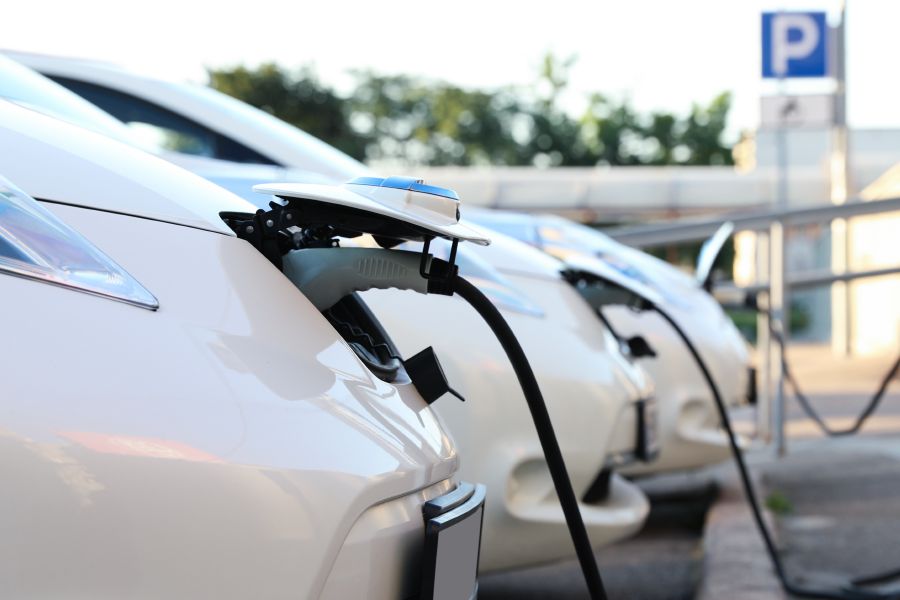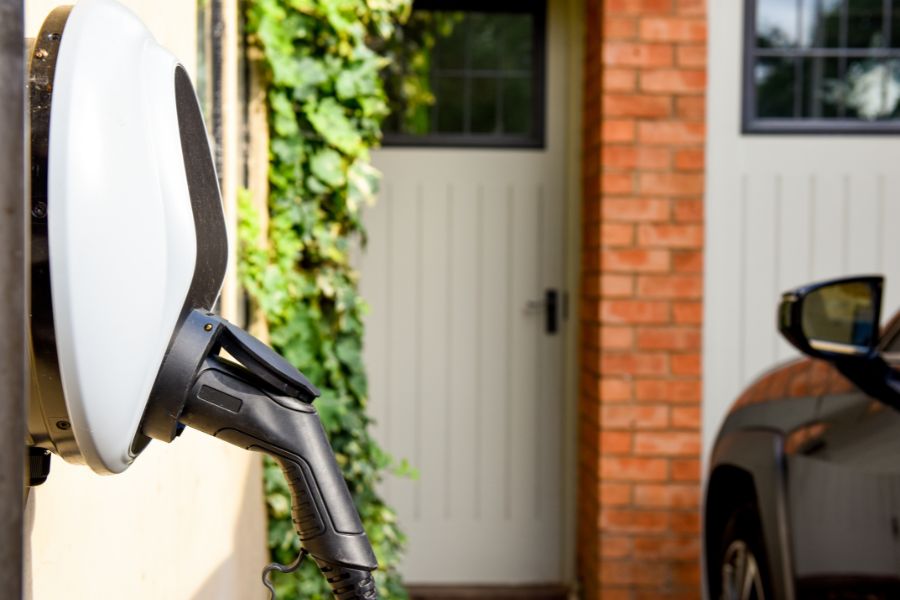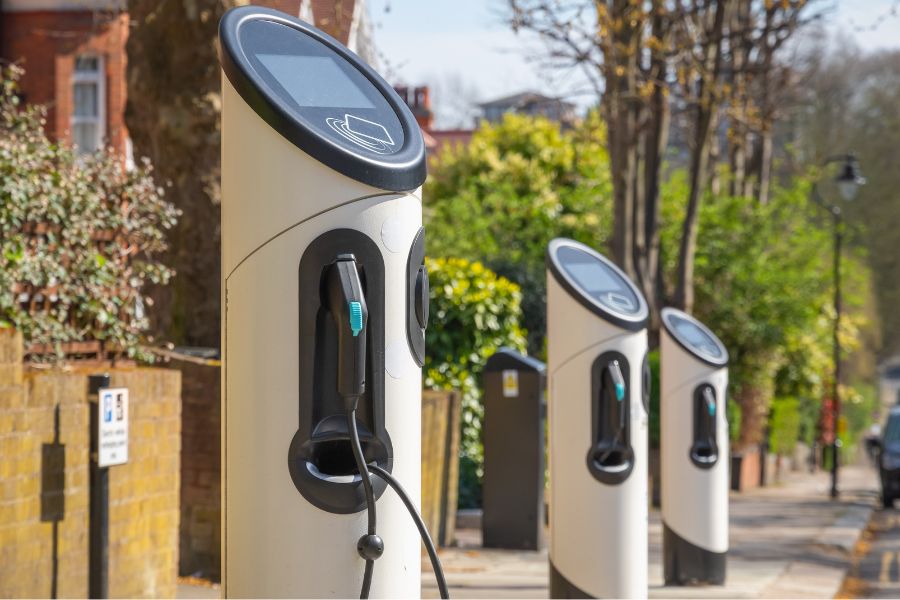Energy saving advice
How much does it cost to charge an electric car?
19 Feb 2024 • 5 minutes

Energy saving advice
19 Feb 2024 • 5 minutes

These days it’s pretty common to see electric vehicle (EV) charging stations all over the place. Whether it’s at a petrol station, at work or even at a home – electric car charging ports are easily accessible – but really, how much does it cost to charge an electric car?
In this article we’ll look at the average cost to charge an electric car and give you all the information you need on where it’s best to charge your EV.

Most EV drivers choose to charge their car at home. It’s not just easy and convenient, but it’s also the cheapest option.
Using an EV home charger costs on average £610 a year, which means it’s around £17 for a full charge.
This is a big jump to the £1,077 a year that it’s estimated to cost using a public charging station. Although, when you compare both costs to the price of filling up a car with petrol, which on average works out to be £1,274 a year, so your savings could soon add up.
Installing an EV home charger can cost anything between £800 and £1,200, which may seem a little steep, but once you’ve made this one-off payment the rest is easy. You literally just plug your car in and let it charge on the drive.
Obviously there are factors to consider in terms of your energy tariff or the type of electric car you have.
Top tip: You can easily calculate the cost of charging your own car or the car you’re planning on purchasing by using the following formulae:
Tariff (e.g. 30p/kWh) * Battery size (e.g. 100kWh) / 100 = Cost to fully charge (e.g. £30.00).
The below table should give you more of an idea of the kind of costs you can expect, depending on your EV type.
| Battery size | Approximate “real-world” electric range | Cost to fully charge | Cost per mile | |
| Nissan LEAF 3.ZERO e+ (2019) | 62 kWh | 239 miles | £17.36 | 8.12p |
| Mercedes-Benz EQE (2022) | 100 kWh | 394 miles | £28.00 | 7.94p |
| Hyundai Tucson PHEV (2021) | 13.8 kWh | 32 miles | £3.86 | 12.79p (electric mode*) |
*Hyundai Tucson PHEV is a plug-in hybrid – this is the cost per mile, when running solely on electric power.
With 36,000 public charging stations now available, there’s multiple options for charging your EV on the go.
In this section we’ll talk you through the different types of public charging points, and how efficient it can be charging your EV out and about.
In terms of speed, petrol station charging stations are a great option. Depending on the type of EV you have and its compatibility, you can usually be 20-80% charged within 30 minutes to an hour. But, you have to keep in mind that because of that extra speed, they can be a bit more pricey.
This method of charging is just as easy as filling up your car with petrol or diesel. As we mentioned before, using this method to charge your electric is more expensive as you’re paying for the convenience of rapid charging. This usually costs £19 on average for a 30 minute charge.
Ultra rapid chargers, also known as DC or Level 3 chargers have the ability to output up to 400kW. This means that they can power an EV in mere minutes, although there’s only around 200 models in the UK that have the battery to accept such high power levels.
Obviously you’ll want to check with your company, as each one is different, but many employers offer free or subsidised incentives to use charging points onsite.
For that reason, it’s often a cheaper alternative to using an EV charger at a petrol station or public car park. The only real downside is that spaces can be at a premium as they fill up quickly.
To combat this, some employers will offer a time-based tariff or offer free charging for a certain time period but you’ll need to check with your employer.

Charging your EV at a public car park will often depend on the network you’re using to charge your car and the location of the charging station.
In the UK, many local authorities offer a “pay as you go” service for public chargers. There’s the rare occasion that they’re offered for free, but in most cases you’ll need to be subscribed to a charging network to access the services.
These subscriptions can include paying a monthly or annual fee to use public charging points. Most EV network providers will ask you to download an app, that way you know how much they’ll charge and help you find them in your location.
You can find more specific information about the top 10 network providers by reading this article.
Generally speaking, EV’s can be cheaper to run than a petrol or diesel car. But there are many things to think about.
Of course, as we’ve talked about in this article, one of the key benefits to using an electric car is the cost to charge against the cost of filling up.
The UK average annual cost to fuel a petrol car is £1,225 and £1,572 for diesel. In comparison, EV’s tend to be significantly cheaper to run than petrol cars. Small-city sized EV cars such as the VW E-Up cost around £690 to £760 over a year.
Although you really need to consider the price you pay for electricity at home or in your area, against the cost of fuel, and of course the type of vehicle you own, to get a clearer picture.
It’s always worth shopping around for different electric tariffs and ways of looking at cheaper energy but it really is a case of doing some research.
If you’re looking to step into the more sustainable, and potentially more cost-effective world of electric vehicles then take a look at our guide on preparing your home for an EV charger.
Our help & advice articles cover Plumbing, Home heating, Electrical, Energy-saving and Home maintenance.